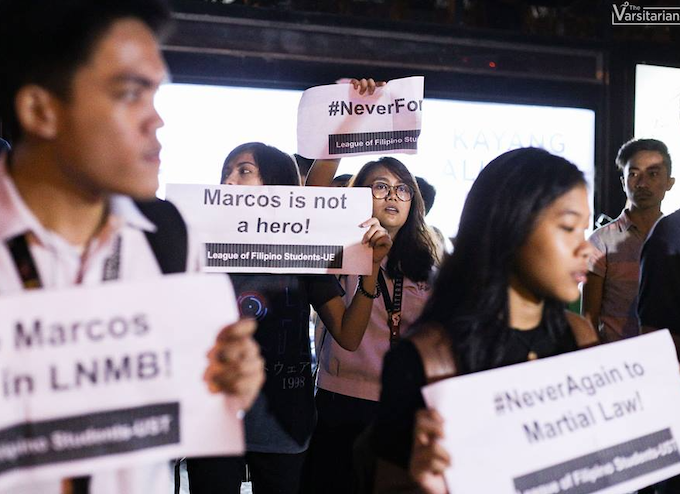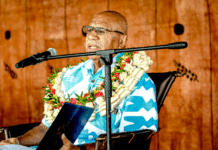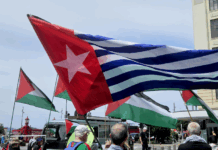
By Llanesca T. Panti in Manila
Textbooks should be changed to underscore the atrocities committed by the Philippines martial law regime of former dictator Ferdinand Marcos, rather than make light of these violations and rehabilitate the Marcos’ reputation as proposed by former Senator Ferdinand “Bongbong” Marcos Jr., says Vice-President Leni Robredo.
advertisement
“Medyo nakakatawa kasi [na] iyon [ang pinopropose niya] kasi kung may kailangang baguhin, kailangan siguraduhin na ma-inculcate sa bawat mamamayang Pilipino kung ano iyong kasamaan na dinala sa atin ng diktaturya,” she said.
“[Ngayon kasi] pinapayagan ulit natin iyong mga Marcos na mamayagpag… gustong sabihin, hindi tayo natuto. Kaya kung mayroong kailangang baguhin [sa textbooks], iyon yon,” Robredo added.
READ MORE: Move on, Leni Robredo camp tells Bongbong Marcos
Marcos Jr., the only son of the late dictator, said in his proposal that textbooks needed to mention that the Sandiganbayan had dismissed at least five ill-gotten wealth cases against the Marcos family.
However, while at least five corruption cases against the Marcoses were dismissed by the Sandiganbayan in 2019, the Presidential Commission on Good Government (PCGG) had also recovered at least P171 billion worth of Marcos ill-gotten wealth since 1987.
There are also at least 12 ill-gotten wealth cases pending against the Marcos family before the Sandiganbayan.
Human rights violations, plunder
In 2012, then President Benigno Aquino III signed the Marcos Compensation Law which granted financial remuneration to victims of human rights violations during the Martial Law years (1972 to 1981) — violations that included summary executions, enforced disappearances and torture — using the late dictator’s and his family P10 billion in ill-gotten wealth, retrieved by the Philippine government from Swiss banks.
In 2003, the Supreme Court also ruled with finality that the 10,000 human rights victims during Marcos’ martial law regime were entitled to this compensation from Marcos’ $10 billion Swiss bank deposits, which the ruling also deemed to be ill-gotten.
Meanwhile, in mid-January 2020, Marcos human rights victims slammed the Cultural Centre of the Philippines (CCP) for hosting a dinner for former First Lady Imelda Marcos to mark the CCP’s 50th founding anniversary, pointing out that such a lavish dinner was tantamount to glorifying the Marcoses’ corruption.
“Her founding of the CCP had nothing noble in her heart for the Filipino people. We should not glorify the leaders of a brutal and bloody dictatorship under Martial law,” Etta Rosales, a torture victim during the dictatorship, told GMA News Online in a text message.
“CCP is after the stolen wealth too? [That apparently] it can’t survive without it? That tells you how low our society has sunk with the devil on top of you. If only people could see that the wealth of the evil will flow to the hands of the righteous someday soon not through human effort but through God, they wouldn’t have to taint themselves with vomit,” poet Mila Aguilar, who was detained during the dictatorship for opposing martial law, said in a separate statement.
In November 2018, the Sandiganbayan convicted Imelda of seven counts of graft for having pecuniary interests and for participating in the management of several non-government organizations in Switzerland from 1978 to 1984, a time when she was prohibited to be involved in such businesses since she was the incumbent Minister of Human Settlements, Metro Manila governor, and a member of the Interim Batasan Pambansa.
Imelda Marcos, who was sentenced to six to 11 years in prison for every count of the graft conviction, was never arrested.














































